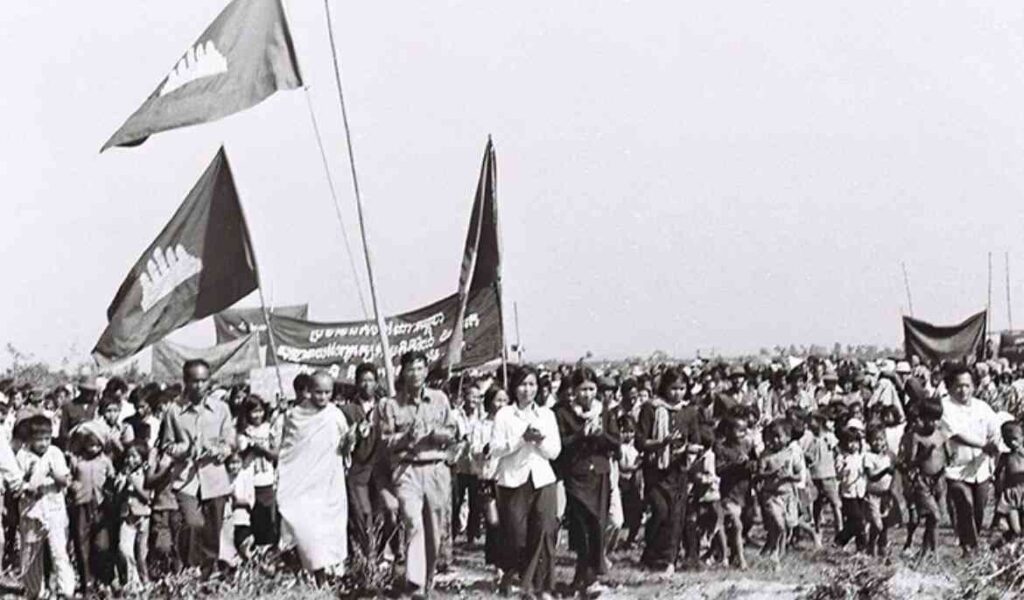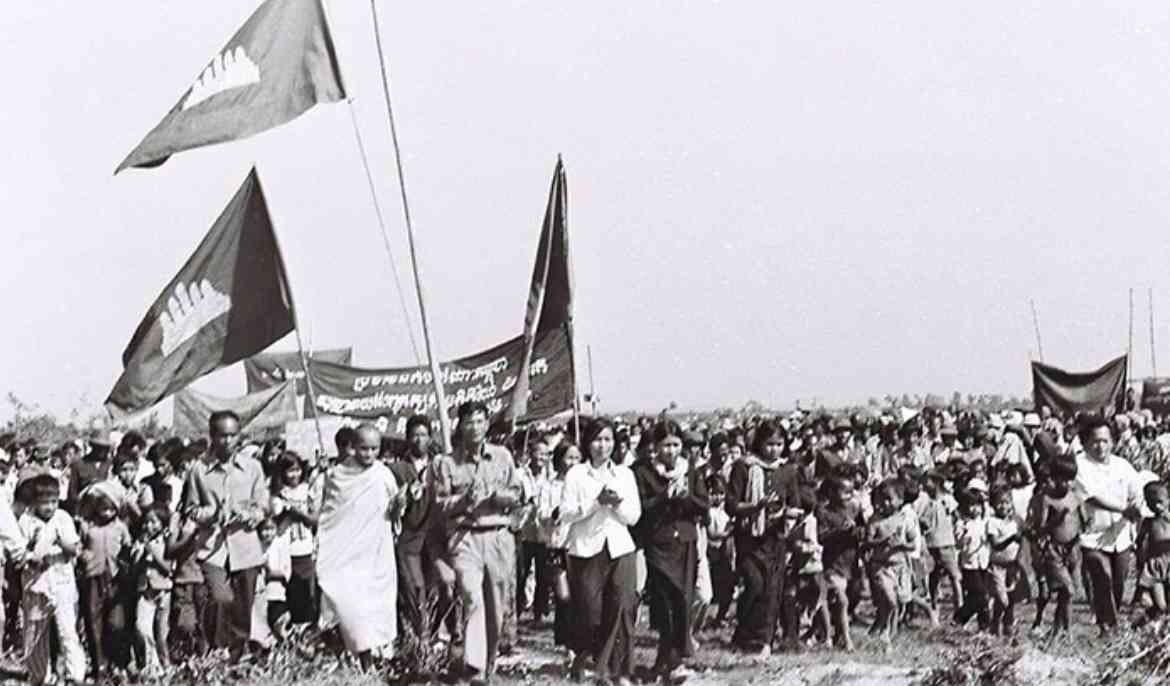Cambodia marked the 46th anniversary of the establishment of the December 2 Front yesterday, officially known as the Kampuchean United Front for National Salvation (KUFNS). This pivotal movement led to the overthrow of the genocidal Khmer Rouge regime on January 7, 1979.
The KUFNS was founded through the collective efforts of patriots both within and outside the country. Key figures included Heng Samrin, Honorary President of the Supreme Privy Council of the King; the late Senate President Chea Sim; and Senate President Hun Sen, among others, who united to successfully topple the Khmer Rouge.
Established on December 2, 1978, at the Snuol Liberation Area in Kratie province’s Snuol district, the KUFNS was later renamed the “Solidarity Front for the Development of the Cambodian Motherland.” It is now a leading mass organisation of the ruling Cambodian People’s Party (CPP).
The victory on January 7, 1979, marked the end of Cambodia’s darkest chapter, ushering in a new era where the Cambodian people reclaimed their rights, freedoms, and opportunities to rebuild their nation.
Mr Hun Sen posted a special social media message on the occasion yesterday, appealing for every Cambodian citizen to clearly understand that without the establishment of the Front on December 2 and the Victory on January 7, there would be nothing like there is today.

“This is the truth of history,” said the former Prime Minister and current Senate President, who was a key figure in the establishment of the national movement to liberate the country from the Khmer Rouge regime.
“In response to the Front’s call, Cambodian people everywhere stood up and united as a national unity force, with the great support from the Vietnamese Volunteer Army and near and far friends around the world to overthrow the Democratic Kampuchea (Khmer Rouge regime) until the glorious victory on January 7, 1979,” he said.
The great victory of January 7, 1979, ended the darkest period in Cambodian history and opened a new era in which Cambodian people regained their rights, freedoms, and opportunities to rebuild their homeland, Mr Hun Sen added.
Also yesterday, Men Sam An, President of the National Council of the Solidarity Front for Development of Cambodian Motherland (SFDCM), presided over a ceremony in Phnom Penh to celebrate the organisation’s founding anniversary. The event was attended by approximately 700 participants.
In her remarks, Sam An said that the spirit of December 2 and January 7 remains deeply ingrained in the hearts and minds of all Cambodians. This spirit, she emphasised, has transformed into a driving force behind significant achievements for the nation.
She called on the leadership and active members of the SFDCM to promote unity, maintain internal solidarity, uphold national pride, strengthen ties with the people, and devote their utmost efforts to serving the citizens and the country.
With this unwavering spirit of solidarity, she expressed confidence that “there will never again be a tragedy like those of the past.”
When the Khmer Rouge completely occupied the country in 1975, Mr Hun Sen had attained the rank of regimental commander in Region 21 of Democratic Kampuchea’s Eastern Zone.
However, like many others in the region, he was viewed with suspicion by the Khmer Rouge regime under Pol Pot. By 1972, Pol Pot had begun targeting Khmer communists with ties to or training from Vietnam. The Khmer Rouge’s anti-Vietnamese campaign intensified, initially focusing on purging “Khmer Hanoi” (those suspected of being Vietnamese spies) and then extending to anyone perceived as having connections with Vietnam. Eventually, those stationed or residing near the Vietnamese border faced increased risk of suspicion, arrest, and elimination.
The leadership journey of Mr Hun Sen is often traced back to June 20, 1977, a pivotal day in Cambodian history on which he crossed the border into Vietnam to start a movement to liberate the country.
This journey marked not only the start of Cambodia’s liberation from a genocidal regime but also the founding of the Kampuchean United Front for National Salvation and the Royal Cambodian Armed Forces, which continue to safeguard the country today, explained Chhang Youk, director of the Documentation Centre of Cambodia.
“He (Mr Hun Sen) had lost his first child during the Khmer Rouge regime, and like many other Cambodians, he was not allowed to either care for his grieving wife or organise a proper Khmer funeral for his dead child,” Youk said.
“He was also aware of the brutality of the Khmer Rouge. He had heard of his comrades being called to attend ‘a study meeting’ from which they never returned, and he witnessed how the regime laid waste to the precious resources of Cambodia—destroying people, communities, and the nation.”



